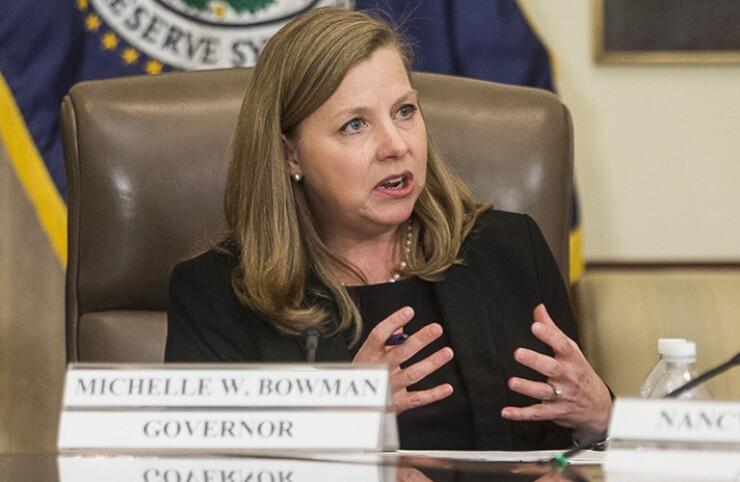Federal Reserve Governor Michelle Bowman said she supports raising interest rates by 75 basis points again in July and following that with a few more half-point hikes.
The hawkish remarks Thursday come roughly a week after the central bank delivered the largest rate increase since 1994. Fed officials are sending a strong signal that they will do what is needed to rein in soaring inflation, while acknowledging that it’s becoming more challenging for them to achieve a soft landing on the economy.

“Based on current inflation readings, I expect that an additional rate increase of 75 basis points will be appropriate at our next meeting as well as increases of at least 50 basis points in the next few subsequent meetings, as long as the incoming data support them,” Bowman said in prepared remarks for an event organized by the Massachusetts Bankers Association. “Depending on how the economy evolves, further increases in the target range for the federal funds rate may be needed after that.”
The Fed’s Open Market Committee raised interest rates by 75 basis points last week to a range of 1.5% to 1.75%. Fed Chair Jerome Powell told reporters after the meeting that another 75 basis-point increase, or a 50 basis-point move, was on the table next month. He was testifying Thursday on Capitol Hill for the second day of semiannual hearings on monetary policy, where he said the Fed’s commitment to fighting inflation was “unconditional.”
Traders in federal funds futures are betting on a 75 basis-point hike in July, even as concerns rise that the central bank’s moves will tip the economy into recession. Markets and the Fed both expect the benchmark rate to reach around 3.4% by year-end.
Officials also began shrinking their massive balance sheet this month. Those higher borrowing costs, combined with quantitative tightening, could spark some weakness in the labor market.
Bowman, a former banker and Kansas regulator who was appointed in 2018 by then-President Donald Trump, said that the central bank’s top priority is getting prices under control.
“While I expect that the labor market will remain strong as the FOMC continues to tighten monetary policy, these actions do not come without risk,” said Bowman, who has never dissented from an interest-rate decision. “But in my view, our number one responsibility is to reduce inflation.”
On the balance-sheet reduction, Bowman said it might make sense to sell mortgage-backed securities later on to accomplish the Fed’s goal of holding a portfolio that is primarily made up of Treasury securities.





